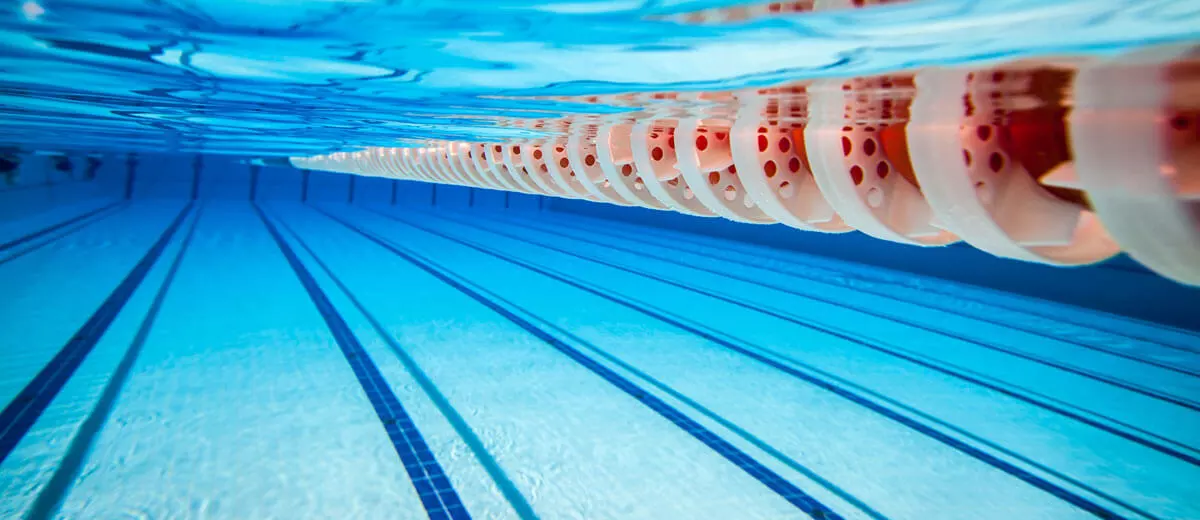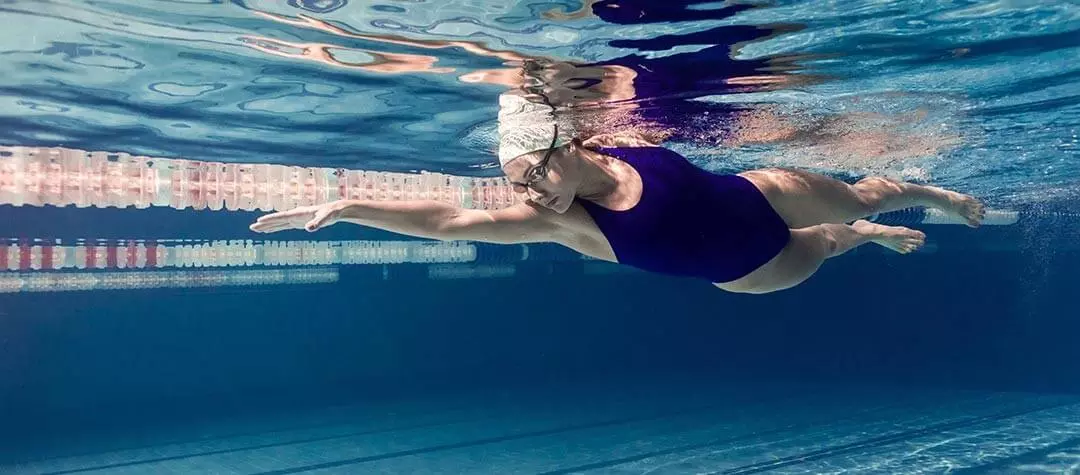Protecting Your Body from Chlorine While Swimming
Swimming can improve people's cardiorespiratory endurance and flexibility, and optimize their body fat rates, so it is loved by more and more people. However, swimming pools are public places where many complex health-related factors exist. If we do not pay attention to hygiene, we are more susceptible to diseases during swimming. So how can we exercise through swimming while staying away from safety hazards?
Swimming pool water is the main source of health risks. It is in direct contact with the human body, and human metabolites (especially urine and sweat) and applied cosmetics (like sunscreen) will enter the pool, creating a suitable environment for the reproduction of microorganisms in the water. At the same time, due to the exogenous pollution, bacteria and viruses that cause diarrhea, pinkeye and respiratory diseases also exist in the water. These pathogenic bacteria cannot be removed by the water treatment system of the swimming pool, so after swimming in a swimming pool with poor sanitation conditions, swimmers often suffer from pink eye, sinusitis, otitis media, pharynx-conjunctival fever, viral upper respiratory tract infection, or itchy skin, flushing and gastrointestinal disease, etc. Therefore, the swimming pool water must be disinfected to prevent the spread of diseases and protect the health of swimmers.

· What are the disinfectants applied in the pool?
At present, the commonly used disinfection methods include chlorination, ozone, chlorine dioxide, ultraviolet and bromine products. And metal ions such as silver ions are also used for disinfection, but the whole set of equipment is very expensive so that is rarely used in China.
Chlorination disinfection is to make chlorine gas or chloride react with water to release hypochlorous acid and kill bacteria and viruses. This method has a long history and was first used in the disinfection of drinking water.
Sodium hypochlorite (NaCIO), commonly known as high-efficiency bleaching powder, is a disinfectant with high frequency. The commercially available chemicals contain 10%-15% effective chlorine. And the price is low and it is easy to obtain.
Trichloroisocyanuric acid (TCCA) is an organochlorine disinfectant with an effective chlorine content of 85%-95%, which can effectively and quickly kill various bacteria, fungi, spores, molds, Vibrio cholera and algae. It has stable properties and is less irritating to human eyes and skin. Hence, trichloroisocyanuric acid is now commonly used as a disinfectant in swimming pool water.
· Is chlorine harmful to the human body?
During the actual use of swimming pools, the concentration of disinfectants in the water will change due to factors such as differences in the hygiene management of the venues, changes in the number of swimmers, the water temperature and the frequency of the pool water change. If the content of the disinfectant is too low, the pool water cannot be effectively disinfected, and it is easy to breed microorganisms; if the content of the disinfectant is too high, it will stimulate and corrode the human skin and mucous membranes.
After being in the water for a long time, the red eyes, the wrinkled and white skin on the hands and the fuzzy hair will occur, which may be caused by the chlorine in the water. Disinfectants, a kind of strong oxidizer, are generally added to swimming pools, greatly damaging the skin and hair, which is also commonly known as "chlorine damage". Moreover, during swimming, human metabolites and sunscreen will enter the pool water, react with disinfectants and generate the by-product of disinfection, which will also affect the health of swimmers.
· How to prevent chlorine damage?
How to protect yourself when swimming? It is recommended to start from the following aspects:
1. Wear swimsuits, swimming caps, swimming goggles, nose clips and earplugs. Do not rub your eyes directly with your hands after water enters the swimming goggles, and rinse your eyes and swimming goggles with clean water in time. If you choke, gargle with water at once.
2. Put an end to the following uncivilized behaviors: no showering before entering the pool, without wearing a swimming cap, spitting and urinating in the pool. And do not drink alcohol before swimming.
3. Swimmers are advised not to swim for too long or too frequently, otherwise some people with sensitive constitutions may have adverse reactions such as skin allergies.

Swimming pool water is the main source of health risks. It is in direct contact with the human body, and human metabolites (especially urine and sweat) and applied cosmetics (like sunscreen) will enter the pool, creating a suitable environment for the reproduction of microorganisms in the water. At the same time, due to the exogenous pollution, bacteria and viruses that cause diarrhea, pinkeye and respiratory diseases also exist in the water. These pathogenic bacteria cannot be removed by the water treatment system of the swimming pool, so after swimming in a swimming pool with poor sanitation conditions, swimmers often suffer from pink eye, sinusitis, otitis media, pharynx-conjunctival fever, viral upper respiratory tract infection, or itchy skin, flushing and gastrointestinal disease, etc. Therefore, the swimming pool water must be disinfected to prevent the spread of diseases and protect the health of swimmers.

· What are the disinfectants applied in the pool?
At present, the commonly used disinfection methods include chlorination, ozone, chlorine dioxide, ultraviolet and bromine products. And metal ions such as silver ions are also used for disinfection, but the whole set of equipment is very expensive so that is rarely used in China.
Chlorination disinfection is to make chlorine gas or chloride react with water to release hypochlorous acid and kill bacteria and viruses. This method has a long history and was first used in the disinfection of drinking water.
Sodium hypochlorite (NaCIO), commonly known as high-efficiency bleaching powder, is a disinfectant with high frequency. The commercially available chemicals contain 10%-15% effective chlorine. And the price is low and it is easy to obtain.
Trichloroisocyanuric acid (TCCA) is an organochlorine disinfectant with an effective chlorine content of 85%-95%, which can effectively and quickly kill various bacteria, fungi, spores, molds, Vibrio cholera and algae. It has stable properties and is less irritating to human eyes and skin. Hence, trichloroisocyanuric acid is now commonly used as a disinfectant in swimming pool water.
· Is chlorine harmful to the human body?
During the actual use of swimming pools, the concentration of disinfectants in the water will change due to factors such as differences in the hygiene management of the venues, changes in the number of swimmers, the water temperature and the frequency of the pool water change. If the content of the disinfectant is too low, the pool water cannot be effectively disinfected, and it is easy to breed microorganisms; if the content of the disinfectant is too high, it will stimulate and corrode the human skin and mucous membranes.
After being in the water for a long time, the red eyes, the wrinkled and white skin on the hands and the fuzzy hair will occur, which may be caused by the chlorine in the water. Disinfectants, a kind of strong oxidizer, are generally added to swimming pools, greatly damaging the skin and hair, which is also commonly known as "chlorine damage". Moreover, during swimming, human metabolites and sunscreen will enter the pool water, react with disinfectants and generate the by-product of disinfection, which will also affect the health of swimmers.
· How to prevent chlorine damage?
How to protect yourself when swimming? It is recommended to start from the following aspects:
1. Wear swimsuits, swimming caps, swimming goggles, nose clips and earplugs. Do not rub your eyes directly with your hands after water enters the swimming goggles, and rinse your eyes and swimming goggles with clean water in time. If you choke, gargle with water at once.
2. Put an end to the following uncivilized behaviors: no showering before entering the pool, without wearing a swimming cap, spitting and urinating in the pool. And do not drink alcohol before swimming.
3. Swimmers are advised not to swim for too long or too frequently, otherwise some people with sensitive constitutions may have adverse reactions such as skin allergies.
